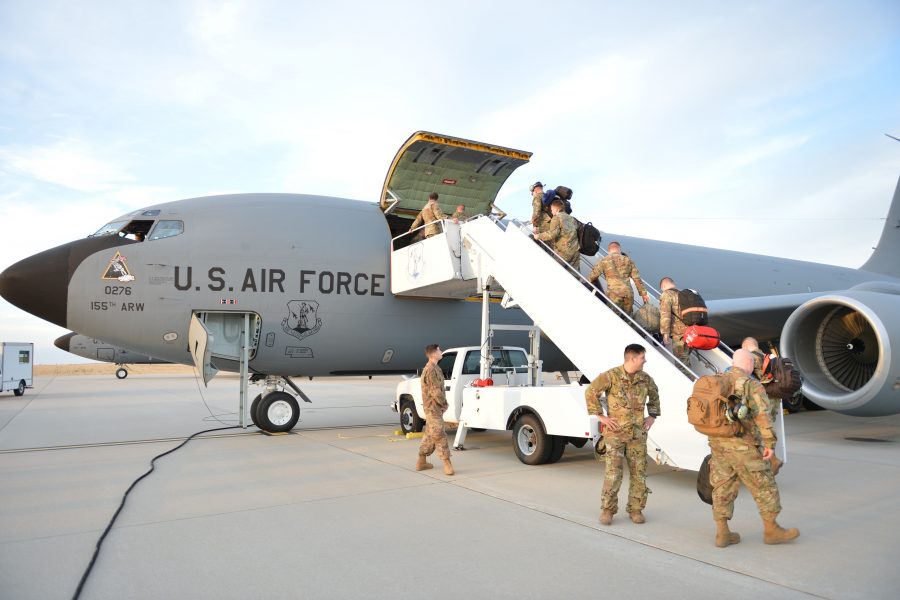Airmen eligible for special incentive pay but unable to meet the requirements due to the new coronavirus outbreak should still receive that money, according to new Pentagon guidance.
The Defense Department on April 9 issued a new fact sheet on pay and benefits affected by COVID-19-related work limitations, specifically addressing aviation incentive pay for Airmen unable to fly enough to meet the required threshold and hazardous duty pay for service members who, because of the stop movement order, are not on expected orders.
“Your command, your service, and DOD recognize that, as a result of the effects or expanded effects of COVID-19, [Active and reserve] service members who are receiving special or incentive pays that require the performance of specific duties … may be unable to perform the required duties through no fault of their own,” the document states.
As long as the service members are eligible, the Air Force has the authority to waive the performance requirements so an Airman can receive this expected pay. This is true even for those who have just arrived at their unit and haven’t met the initial duty performance requirements, according to the Pentagon. While the service Secretaries have the authority, it can be designated down to the first general officer, flag officer, or civilian equivalent in the chain of command.
Those with questions or hoping to apply for the waiver should contact their chain of command.
Additionally, drilling Reservists and Guardsmen who receive one or more special or incentive pays, such as flying, parachuting, or diving, can also receive this pay if their drill periods have been canceled, rescheduled, or are being done virtually.
The guidance also states that service members who had been living off base and receiving basic allowance for subsistence, and have been moved on base and are receiving government-provided meals, can still receive their BAS funding because “your commanders recognize that in response to the spread of COVID-19, personnel are being restricted in their movements to self-monitor, protect theirs and their families’ health, or assure mission function capability,” the guidance states.
